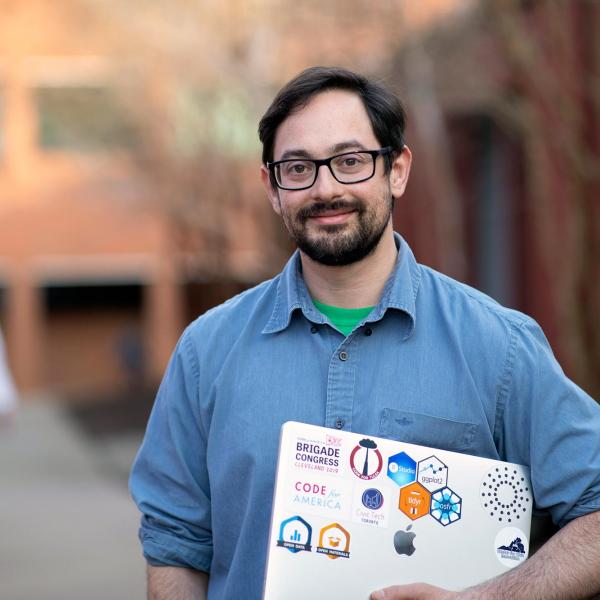By Toshy Penton
You stare at the names on the ballot, none of which you recognize, and appeal to a friend: “Just tell me who to vote for.”
If you’ve ever felt uninformed in local elections, you’re not alone. One could point to any number of theories for this lack of information: social media distractions, internet misinformation (and disinformation), breakdowns of trust in democratic institutions. In 2024, election information is scattered, disorganized, and sometimes downright toxic. Compared to venture-backed technology on your smartphone, election information is inaccessible and uninteresting. But the same technology that monetizes our collected attention could instead be used to build civic attention—a collective focus on our rights and duties as citizens.
Rapid advancements in information technologies have changed the media and how we access information. Though it began as potential for a better information-sharing medium, the internet has devolved into a clickbaity, sharing-obsessed, often toxic attention economy. Under the guise of saving the world, the biggest tech companies design apps to capture attention, harvest data, and sell advertising.
“There is a tech gap that has been growing over the past 20 years,” says Jonathan Kropko, a UVA data science professor who leads Code for Charlottesville. “The gap between what a well-financed large organization can do with technology and what a cash-strapped, small organization can do with technology. Right now that gap is bigger than ever.”
While the tech gap grows, there are glimmers of hope. Nonprofit civic tech organizations like Code for America aim to “transform government systems.” Since the organization’s inception in 2009, civic technology has changed government services for the better—how veterans access their benefits, how criminal records are processed, and how we do our taxes. Take, for example, the U.S. Digital Service. Established in 2014, the technology unit (housed in the Executive Office of the President), focuses on improving federal websites, making them simpler and more accessible.
When it comes to election information, however, the government is not going to solve the problem—and both sides know it. Three retiring members of Congress who spoke to the New York Times in late April—Larry Bucshon (R—Ind.), Anna Eshoo (D–Calif.), and Doug Lamborn (R–Colo.)—all responded similarly when asked about our broken government: The American people need to fix it. The subtext? Government can’t/won’t.
If the government won’t fix our politics, civic tech could help. It could make election information accessible, informative, and interesting. This space is ripe for disruption. Every year, millions of Americans search Google for election information. Ballot research is time- and labor-intensive and the current landscape is unnecessarily convoluted, putting an undue burden on American voters.
Election and civic information should be intuitive, engaging, and among the easiest things to find on the internet.
“Data is power in many ways,” says Kropko. “If you have the capacity to collect and organize and utilize massive amounts of data it gives you a lot of power. The only missing piece is the organizational one.”
Accessible information could transform elections, government, and civic engagement. Let’s give Americans the critical information they’re looking for and hand such power to a bipartisan, socially equitable, mission-driven organization whose interest is the public good. With appropriate strategy, funding, and state-of-the-art technology, we can rejuvenate our democracy.
If we don’t prioritize civic technology, it will continue to get drowned out by big tech and for-profit inertia.
Toshy Penton is a digital marketer with a passion for politics. His website, Local Candidates, aims to simplify civic engagement with accessible information on Virginia elections and government.









